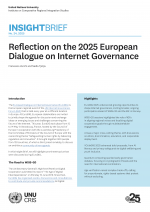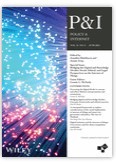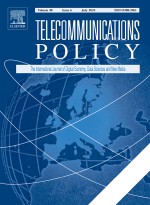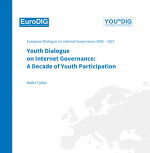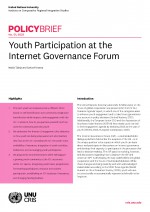Tjahja, Nadia
Internet Governance & Digital Sovereignty
Information Disorder & Media Literacy
Systems Thinking & Cybernetics
PhD in Political Science on the topic "Meaningful participation in global and regional multistakeholder institutions: The case of the Internet Governance Forum
MA in European Interdisciplinary Studies, majoring in “The EU as a Global Actor” – College of Europe in Natolin (Poland)
BA in Communication Studies – Vesalius College (Belgium)
CertHE in Law – University of Essex (United Kingdom)
Nadia Tjahja is a postdoctoral researcher at UNU-CRIS and the Brussels School of Governance (BSOG), working on the project Digital Sovereigns and the Non-Sovereign Internet: A Cautionary Tale (DSNS-ACT). This project, led by Prof. Dr. Jamal Shahin, aims to map out the meanings of digital sovereignty by listening to stakeholders from spaces globally and reflect what this implies for the functioning of the open Internet. Nadia also contributes to EU projects EDMO BELUX and S.HI.E.L.D vs Disinfo, and teaches (Dis)information Literacy at the BSOG.
Previously, she was a PhD Fellow at UNU-CRIS and the VUB, working on the project “The contribution of global and regional multistakeholder mechanisms in improving global governance (GREMLIN)”, which was a collaboration between UNU-CRIS, VUB and the Centre for EU Studies at Ghent University. She was supervised by Prof. Dr. Jamal Shahin and Prof. Dr. Trisha Meyer.
Nadia holds a PhD in Political Science from the Vrije Universiteit Brussel on the topic "Meaningful participation in global and regional multistakeholder institutions: The case of the Internet Governance Forum, and a Masters degree in European Interdisciplinary Studies from the College of Europe in Natolin. She speaks and consults internationally about Internet governance, multistakeholderism and youth participation within digital and policymaking processes, and sits on expert and advisory boards organised by the United Nations, European Commission and the Council of Europe.

